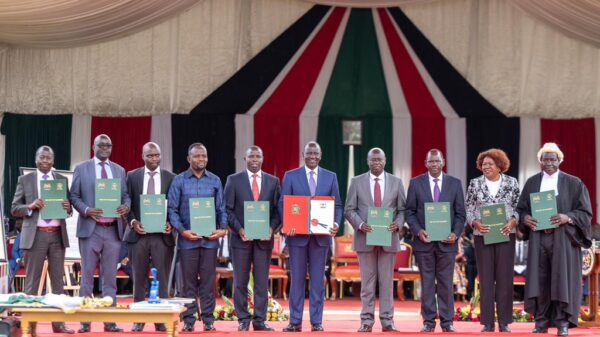NAIROBI, Kenya Jun 29 – The government is set to review a recent budget inclusion to lower duty on imported wheat.
Following a Cabinet meeting held on Tuesday, President Mwai Kibaki directed the relevant ministries to review all the issues of concern to farmers and report to the Cabinet for appropriate action.
This follows public outcry from wheat farmers across the country who argued that the move opens the door for an influx of cheap imports, which will erode their market share.
In the 2010/2011 Budget, Finance Minister Uhuru Kenyatta proposed the lowering of the duty on imported wheat from 35 percent to 10 percent, in response to a shortage of the grain in the country.
However, good rains at the start of the year have seen the Ministry of Agriculture project farmers in lower and upper Narok will harvest close to 27 bags of 90 kilos each per acre this season, compared to 10 bags of the same weight over the last four seasons.
Wheat farmers in Narok were up in arms on Monday protesting the lowering of the duty saying millers would opt for cheaper imported wheat leaving them without a market for their crop.
Kenya National Federation of Agricultural Producers Chairman, Samuel Gitonga says that wheat from countries where farming is subsidised was going to flood the market thus affecting the prices of local produce.
He said millers would opt to buy the cheaper imported produce while shunning what local farmers have struggled to produce.
Between 2003 and 2009 the region produced 260 million bags with farmers earning more than Sh2.6 billion.
Close to 100,000 hectares of land are under wheat cultivation. Kenya relies on imports especially from Egypt and Mauritius under special arrangements with the Common Market for Eastern and Southern Africa (Comesa) to meet its shortfall.
Local consumers welcomed the lowering of the duty insisting it would lead to relief of the high cost of wheat products occasioned by the scarcity of the grain.



































